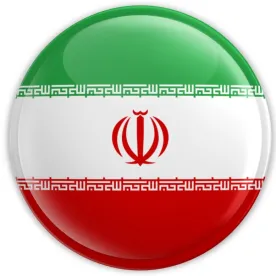On June 27, the U.S. Treasury Department’s Office of Foreign Assets Control (OFAC) took further steps to implement the U.S. withdrawal from the Iran nuclear deal (the Joint Comprehensive Plan of Action or JCPOA), announcing amendments to the Iranian Transactions and Sanctions Regulations (ITSR). These amendments are effective on June 28 and primarily affect U.S. companies – including those in the aerospace, foodstuffs, and carpets industries – as well as those with U.S.-owned or -controlled foreign entities. Several deadlines are on the horizon for wind-down and compliance, starting on Aug. 6, 2018.
What Has Changed? OFAC made several changes to the ITSR, consistent with the JCPOA withdrawl policies it previously announced.
First, OFAC revoked General License H, which had authorized U.S.-owned or -controlled foreign entities to engage in many activities with Iran. In its place, OFAC added a new general license to the ITSR, which authorizes only certain wind-down activities by U.S.-owned or
-controlled foreign entities. These wind-down activities must be completed by Nov. 4, 2018.
Second, OFAC revoked General License I, which had authorized certain transactions related to the negotiation of, and entry into, contingent contracts involving exports and re-exports to Iran of commercial passenger aircraft and related parts and services. In its place, OFAC added a new general license to the ITSR, which authorizes a very narrow set of negotiation-related wind-down activities to be completed by Aug. 6, 2018. OFAC previously announced that it intends to revoke all specific licenses granted under its JCPOA statement of licensing policy, which had authorized the export or re-export of aircraft and related parts and services. (There is, however, an opportunity to submit new specific license applications under a separate “safety of flight” licensing policy).
Finally, OFAC amended the general licenses that authorized the import of Iranian-origin carpets and foodstuffs, as well as related letters of credit and brokering services, to require wind-down activities to be completed by Aug. 6, 2018.
Impact on U.S. Companies? Failure to comply with the wind-down requirements could expose companies to substantial civil and criminal penalties under the ITSR. Thus, companies that have been operating under any of the JCPOA general and specific licenses should review their transactions, policies, and procedures to ensure that they can meet the applicable wind-down dates. For instance, those in the aerospace industry should review any pending sales or service agreements.
With respect to General License H, U.S. companies should take steps to ensure their owned or controlled foreign entities cease Iran-related activities by Nov. 4. This could include amending policies and procedures to prohibit Iran-related business by U.S.-owned or -controlled foreign entities. However, U.S. companies should tread carefully and bear in mind the continuing ban on facilitation of non-U.S. persons’ Iran-related business. In other words, U.S. companies could face liability if they assist their owned or controlled foreign entities with wind-down activities.






 />i
/>i
